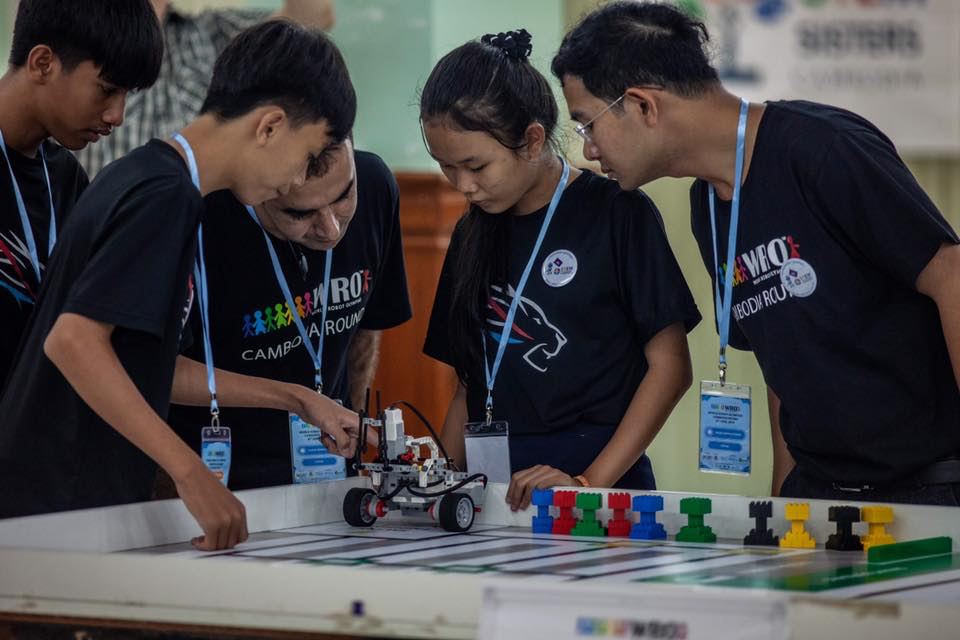The holistic academic program provides all students with a rigorous educational foundation with tailored learning experiences that maximize student engagement, achievement, and impact. Through project-based learning modules, students have frequent opportunities to collaborate in discussing, dissecting, and proposing possible solutions to complex, real-world problems. The academic program is based on two separate, but related styles of coursework. Essential classes, including English, Khmer language, Math, and Science, underpin the level of academic rigor expected for all applied learning experiences. With the knowledge and skills gained in these fields of study, students are equipped to excel in experiential, project-based, and opportunity-based learning. This combination of traditional and 21st century coursework provides an authentic and deeply meaningful education.
Course Details:
- ESSENTIALS – core classes in Math, English Language Arts, Entrepreneurship, Khmer Literacy, and Science, including physics, chemistry, biology and physical science
- EXPLORATIONS – nine-week, project-based learning modules focused on investigating complex, real-world issues and proposing possible solutions through collaboration, communication, networking, and using the world as a classroom
- ADVANCED ENRICHMENTS – introductory-level short courses taught in Grades 7 and 8; these are content-based, pass-fail courses that aim to expand students’ frames of reference for future areas of study
- EXPERTISE – skill-based, independent courses in Grades 11 and 12; these are credit earning, but not GPA-bearing, and include internships and electives; the goal is for students to use this time to take control of their own learning, diving deeper into areas of talent and/or passion as they begin to consider their pathway after graduation
In addition to frequent internal, Liger-developed assessments that are both formative and summative, a host of internationally-recognized standardized tests are utilized in Grades 7-12 to track student progress and learning outcomes across several domains.
This includes: The Measure of Academic Progress (MAP) tests; the WIDA Measure of Developing English Language (MODEL); Advanced Placement coursework and exams, which can be used to earn college credit from North American universities; and the SAT and/or the IELTS, two exams that are commonly required for entrance to overseas universities.
EDUCATION TEAM
Educators are called Learning Facilitators. Their role is to help students become an integral part of their own learning process. The recruitment, training, and retention of exceptional, diverse, and committed staff is imperative to the success of the Liger model. Generally, there is a ratio of one Learning Facilitator to every 15 students, and when the ratio includes teaching assistants, it is 7.5 students to one education team member.

